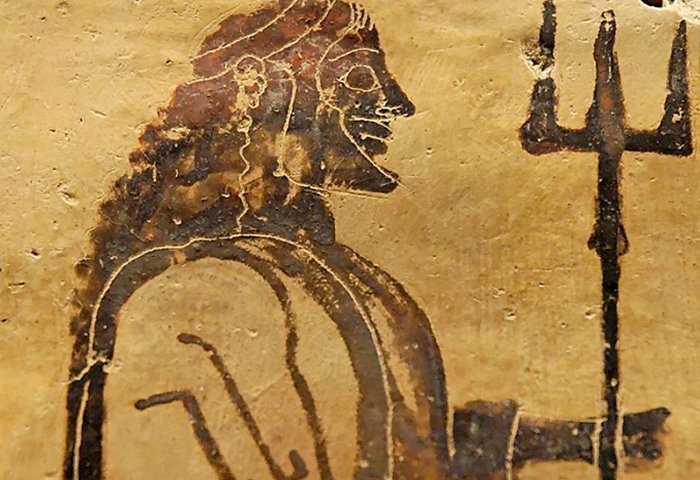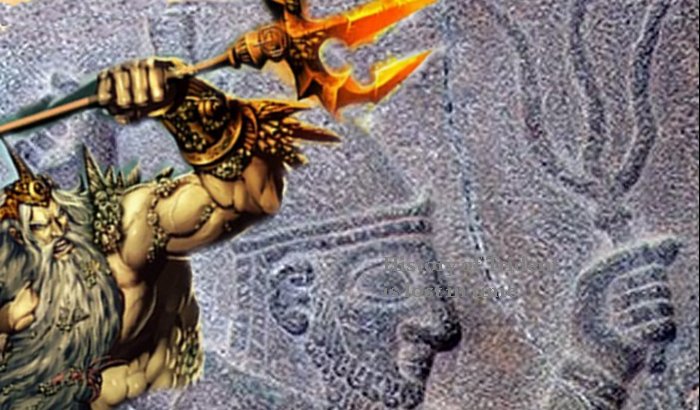A. Sutherland – AncientPages.com – According to Greek legends, Poseidon (equated with the Roman god Neptune) possessed a magical trident. When angry, the Greek god of the sea could cause storms, tsunamis, and earthquakes, submerge lands and islands and split rocks with his magical trident.

Poseidon with his trident, Corinthian plaque, 550–525 BC. From Penteskouphia. Public Domain
With this powerful three-pronged spear, he could finally bring back peacefulness again. Poseidon’s divine trident was created by the Cyclops, the giants skillful in metallurgy.
” In the hands of Poseidon or Neptune, the trident has a practical use, since it emulates the shape of one of the earliest fishing implements. Poseidon uses it to control the seas, so it is a symbol of authority. Because of its association with water, the trident is the alchemical symbol for this element.
“Where a trident has three prongs of even length, it is a secret symbol of the Cross of Christianity. However, Satan is often seen harrying the souls in hell with a trident. It is likely that he is depicted with it in order to associate him with the pre-Christian Gods who also used it.
This versatile three-pronged tool is also a fire symbol—the prongs look like flames—and it is, therefore, a symbol of thunderbolts and lightning. As such, many of the sky Gods carry a trident, too. These include Thor or Wotan of Norse mythology…” (Nozedar, Adele. The Element Encyclopedia of Secret Signs and Symbols)
Kongo – Trident-Shaped Staff With Powers
In Japanese mythology, a Kongo (kongose) is another, spectacular, trident-shaped staff, which emits bright light in the darkness. The Kongo grants wisdom and insight, and today is not considered a weapon but rather a kind of ritual object called the Kongo vajra (meaning thunderbolt).
In Japanese legends, the Kongo vajra was a formidable weapon that belonged originally to the Japanese mountain god Koya-no-Myojin.
However, the Kongo remains among many other puzzling objects that have survived to our time.
Source: AncientPages.com – Read rest of the article here







